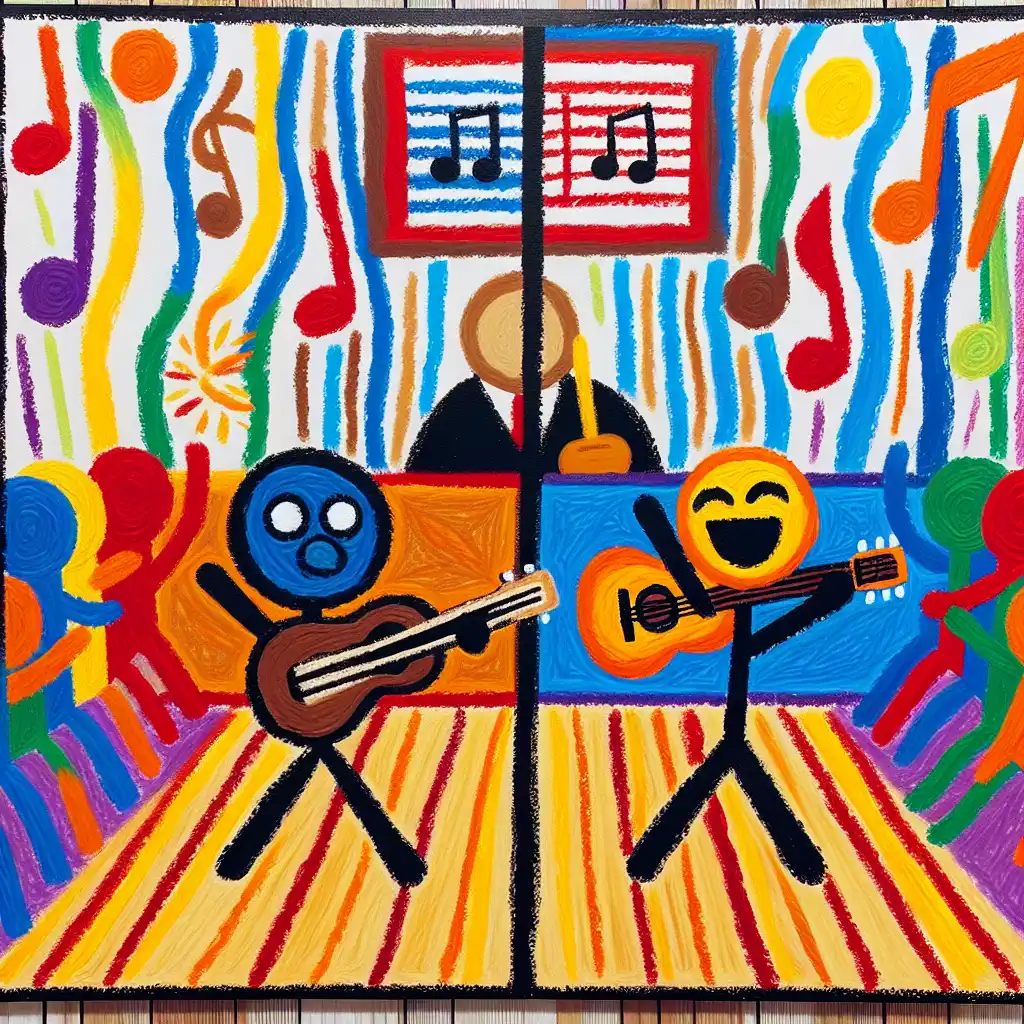Baby Shark song not plagiarised - South Korean top court

Explain Like I'm 5
Imagine you drew a super cool picture of a sun and showed it to your friends. One of your friends later draws another sun, but it looks a bit different from yours. You might feel like, "Hey, that's my sun!" But really, it's just another sun, because lots of people can draw suns without copying yours. That's kind of what happened with the "Baby Shark" song. A man in the U.S. said he made up a song that was a lot like "Baby Shark" before it became super popular. He went to court in South Korea to say, "Hey, that's my song!" But the court decided that "Baby Shark" was its own song and wasn't copied from the other man's song. So, just like drawing suns, making up songs can sometimes be similar, but it doesn't mean one was copied from the other!
Explain Like I'm 10
The "Baby Shark" song, which you probably know because it gets stuck in your head, was taken to court in South Korea. A composer from the United States thought that the song was too similar to a tune he had made earlier. He believed that his song was copied by the creators of "Baby Shark" and wanted the court to say it was his song. This is called a copyright claim, where someone says, "Hey, that's my creative work, and you used it without my permission."
However, the top court in South Korea looked into it and decided that "Baby Shark" was not a copy—meaning, it was made independently without stealing from the U.S. composer's song. It's kind of like when two people come up with a similar idea for a science project without knowing about each other's work. The court's decision means that "Baby Shark" is considered an original song by the law, and the people who made it didn't do anything wrong by using their own ideas.
Explain Like I'm 15
The "Baby Shark" song, a global phenomenon known for its catchy tune and repetitive lyrics, was recently the subject of a legal battle in South Korea. A U.S. composer claimed that the creators of "Baby Shark" plagiarized his musical work, arguing that the similarities between his song and "Baby Shark" were significant enough to merit a copyright infringement. Copyright infringement is a serious accusation that implies someone took another's creative work without permission and used it for their own benefit, which can lead to legal penalties if proven.
The case reached the top court in South Korea, where judges had to decide whether the similarities between the two songs were just coincidental or if there was actual copying involved. After reviewing the details, the court concluded that "Baby Shark" did not violate the U.S. composer's copyright, essentially stating that the song was independently created and not plagiarized.
This decision highlights the complexities of copyright law, especially in the music industry where differentiating between inspiration and theft can be murky. It also underscores the global nature of copyright disputes in our interconnected digital world, where a song can cross borders and become a worldwide hit overnight. The ruling has broader implications, affirming the importance of establishing clear originality in creative works while also protecting the rights of creators against unfounded claims. It's a significant victory for the creators of "Baby Shark," ensuring that their catchy tune can continue to swim freely in the vast ocean of music without legal barriers.
Want to read the original story?
View Original Source